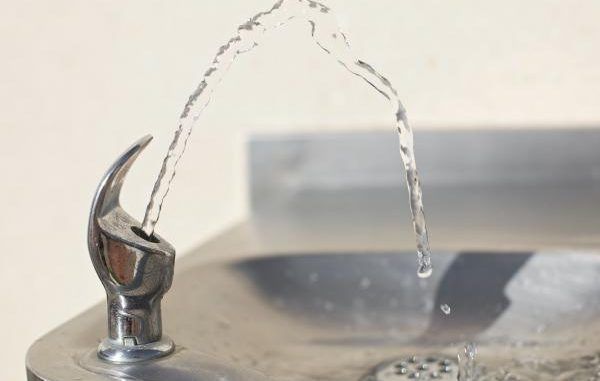
Public schools across Newark, New Jersey, were forced to shut off water fountains on Wednesday after annual testing results revealed high levels of lead in the water supply
Officials say they do not know how long students at nearly half of the schools in Newark had been drinking the water, but added that they did not believe the contamination was likely to pose any serious health risks.
Common Dreams reports:

BYPASS THE CENSORS
Sign up to get unfiltered news delivered straight to your inbox.
You can unsubscribe any time. By subscribing you agree to our Terms of Use
The water supply at a total of 30 Newark schools tested higher for lead than the Environmental Protection Agency (EPA)’s “action level,” 15 parts per billion, at which point the agency requires “additional testing, monitoring, and remediation,” according to ABC.
But despite the EPA’s designation, the Centers for Disease Control and Prevention (CDC) tells parents that “no safe blood lead level in children has been identified.”
“Even low levels of lead in blood have been shown to affect IQ, ability to pay attention, and academic achievement,” the CDC continues in its online fact sheet, “And effects of lead exposure cannot be corrected.”
NJ.com reported that the district-wide testing commenced after staff noticed discolored drinking water in one elementary school on March 3, and officials had received the concerning results on Monday but waited until Wednesday to notify parents.
Newark school district officials attempted to smooth over any alarm, telling parents that they “should have no concerns about students’ water and food consumption at the school while the situation is addressed,” in a press release.
Kate Galbraith in the Guardian reported on the particular dangers of lead in school water supplies last week:
“Schools pose special challenges for lead—and not just because children, with their developing bodies and brains, are especially vulnerable to toxins. Unlike homes, the water at schools goes through long periods of not being used, including during nights, weekends and holidays and especially the summer.
Even though lead pipes have been banned for decades, lead from faucets, valves and solder (i.e., the way pipes are connected), as well as from the ageing pipes themselves, can leach into the water. ‘When water sits in pipes and stagnates, it collects and it absorbs lead,’ [affiliate Virginia Tech faculty member Yanna] Lambrinidou said. ‘These prolonged stagnations can actually place children at increased risk.'”
The Newark school district played down the threats posed by lead on its website, announcing to parents: “As a precautionary measure, the Newark Public Schools has voluntarily placed bottled water in a subset of schools to ensure that the water students drink at those locations is clean, safe and healthy.”
Newark’s mayor, Ras Baraka, told reporters during a press conference on Wednesday afternoon that tests show the city’s water supply is still safe to drink. “I understand in the Flint environment that any sign of elevation is going to make everyone go haywire,” the mayor said, “but here, the water system in Newark is still safe, it’s still drinkable.”
In the wake of Flint’s water crisis, more media attention has been paid to elevated lead levels in water systems nationwide—particularly in those serving impoverished and non-white communities. In Newark, a significant majority of public school students are Latino or African-American and 76 percent of students in the district qualify for a free or reduced price lunch.


